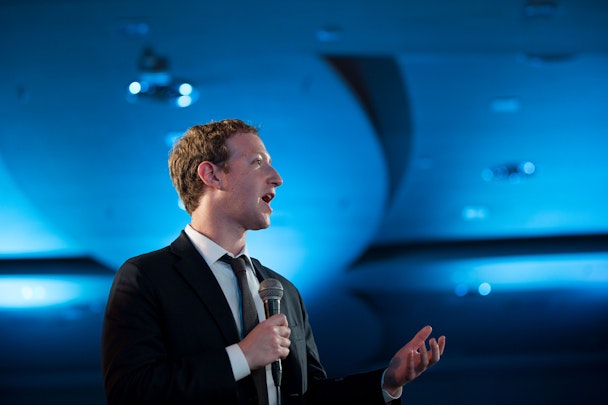Global MPs want to tighten the screw on Facebook – here's what you need to know
On Tuesday (27 November), MPs from around the world came together for a multi-parliament hearing to question Facebook on how it's combating fake news and to discuss its role in democracy.

Mark Zuckerberg was notably absent from today's global hearing / White House Archives
The rare global gathering bookends Facebook’s most tumultuous year to date. At the time of writing, the social network is facing accusations it was inadvertently involved in electoral interference in the US 2016 elections and Brexit, as well as concerns over its policing of fake news, transparency and more recently the seizure of documents alleged to contain revelations on data and privacy controls that led to the Cambridge Analytica scandal.
Facebook's chief Mark Zuckerberg refused to show to the UK-hosted hearing. Instead, lawmakers from Singapore, Brazil, Argentina, Ireland, Canada, Belgium, France and Latvia took turns questioning Richard Allan, Facebook’s vice-president of policy solutions.
This isn't the first time Zuckerberg has been notably absent on the world stage. Earlier this year, he declined an invite to give evidence to the UK parliament about Cambridge Analytica.
The discussion was varied, and parliamentary representatives touched on a number of issues US regulators failed to when they grilled Zuckerberg earlier this year.
Here's what you need to know.
Politicians think Facebook has lost the right to self-regulate
The vice chair of a top privacy committee in Canada, Charlie Angus, criticized Zuckerberg’s decision to “blow off” the hearing, and said the world’s democratic institutions have been “upended by frat boy billionaires in California.”
Angus added: “I put it to you that you have lost the trust of the international community to self-police, and we have to start looking at a method for holding [Facebook] accountable.”
Canada’s Bob Zimmer asked whether Allan thinks Canada’s democracy is at risk if the country doesn’t change its laws to deal with ‘surveillance capitalism’.
Allan said foreign interference is highly problematic, but domestic issues from home-grown bad actors exist as well.
Facebook has been attempting to improve its transparency around data and politics. The site has begun to explicitly label political ads in the UK, and it made changes to how political campaigns appear on newsfeeds for the US midterms.
Concerns are still swirling among regulators, though. Later today, the nine countries involved in the hearing are expected to sign a set of ‘International Principles for the Law Governing the Internet,’ which signals even greater scrutiny of not only Facebook, but also other social media companies to come.
Facebook still has to convince politicians that it's doing everything it can to police fake news
Sun Xueling of Singapore asked how Facebook is policing fake news accounts across its properties.
Allan replied, saying most fake accounts are created with commercial intent but are taken down within minutes. There are also people who are more careful and create one or two accounts, acting as though they are normal Facebook users, and they are the hardest to catch, Allan added.
He explained that “low-quality information” on the site has reduced by over 50%, according to a study from a French research institute.
MPs think Facebook should be subject to anti-trust regulation
Media buyers have long had a problem with Facebook inflating its video metrics; something Angus described as “corporate fraud on a massive scale,” to which the best fix is anti-trust.
Allan alluded that regulation would not solve the real problems at hand for the company, which also owns WhatsApp and Instagram.
“Unless you’re going to turn off the internet, I’m not confident that people would be better off in a world where Facebook is not able—however imperfectly—to offer services where we spent 15 years learning how to do," he said.
Brazil’s Alessandro Molon lamented how WhatsApp was “widely used to spread manipulated content,” and that the service banned more than 100,00 accounts in Brazil’s more recent election.
Facebook and other media giants are already facing a possible antitrust probe from the White House over ‘online platform bias.’
Advertising on Facebook may soon look different
Allan said Facebook's ad model isn't going to undergo a wholesale shift any time soon, but it may see some changes.
“[Political advertising] is one of the areas where we would really appreciate a discussion with policymakers. At the moment, in the UK, we say if you’re talking about a party or a candidate, or an issue in front of the legislature,” he explained.
Allan said currently, Facebook requires users to register as political advertisers once they’re found running political ads.
Regarding how Facebook tracks its users, Allan added that any decision the EU makes to limit that will have profound implications on the ability of the publishing industry to advertise.
Nele Lijnen from Belgium said she believes how Facebook tracks data of non-users isn’t GDPR compliant. Allan disagreed.
